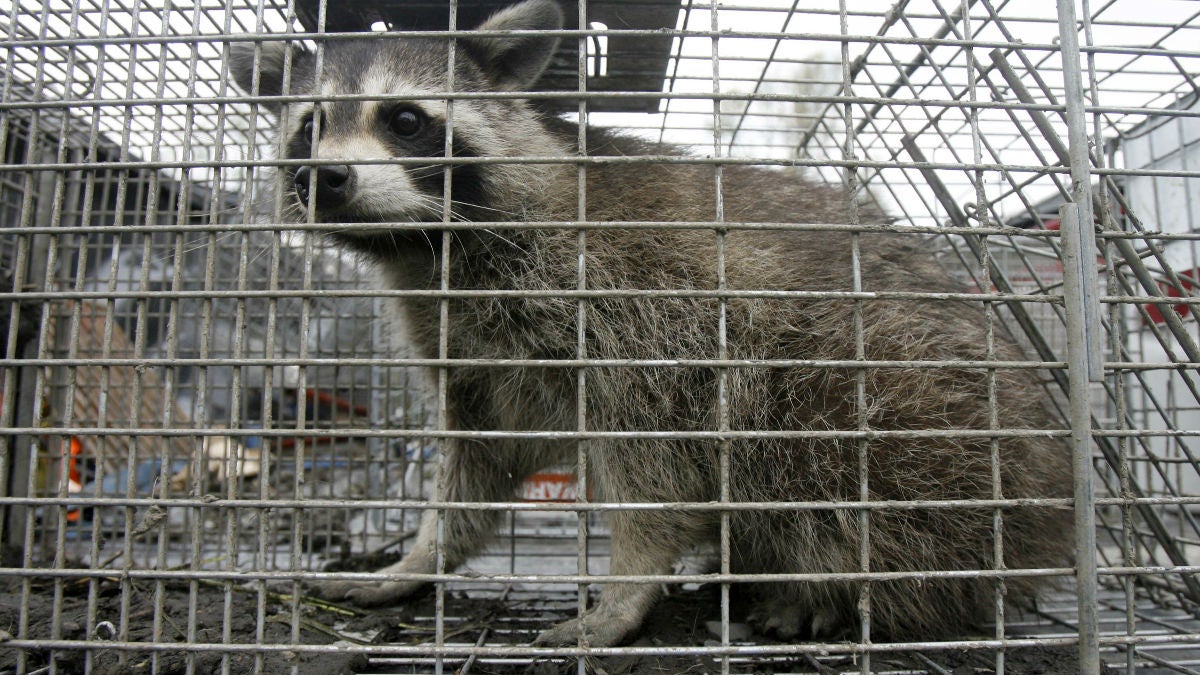Rabid raccoon warning for north Wilmington

This file photo shows a captured raccoon in Vermont. Delaware health officials are warning residents to stay away from wild animals. (AP Photo/Toby Talbot)
A sick raccoon was found after fighting with pet dogs in the Chalfonte area north of Wilmington.
On Thursday, lab results confirmed that the raccoon that fought with the dogs in Chalfonte was in fact rabid. The raccoon was euthanized.
The Delaware Division of Public health warns residents to avoid contact with wild or feral animals whether or not the animal seems friendly.
“As the weather gets warmer, people and their pets may be spending more time outside,” said DPH Secretary Dr. Karyl Rattay. “It is important for people to remember never to approach unfamiliar animals and to keep pets indoors or supervised on a leash while outside.”
DPH suggests anyone who thinks they may have been bitten, scratched, or just come in contact with a raccoon to contact their doctor or the DPH Rabies Program at 302-744-4995 immediately.
Since January, DPH has tested 24 animals for rabies, with four confirmed cases including two raccoons, one cat and one dog.
Rabies is an infectious disease that affects the nervous systems of humans and other mammals. While rabies cannot be cured once symptoms appear, it is almost 100 percent preventable. Vaccinating pets and livestock is a key step in prevention, according to DPH.
They also list the following tips:
All dogs, cats and ferrets 6 months of age and older are required by Delaware law to be vaccinated against rabies by a licensed veterinarian. Consider vaccinating livestock and horses. It is recommended to consult with your private veterinarian if you have any questions regarding whether your animal(s) should be rabies vaccinated.
Pet owners can reduce the possibility of pets being exposed to rabies by not letting them roam free.
Spaying or neutering your pet may reduce the tendency to roam or fight and thus reduce the chance they will be exposed to rabies.
Do not feed or water your pets outdoors; bowls can attract wild and stray animals.
Keep your garbage securely covered.
Do not handle unfamiliar animals, including cats and dogs, even if they appear friendly.
WHYY is your source for fact-based, in-depth journalism and information. As a nonprofit organization, we rely on financial support from readers like you. Please give today.





